News
EFSA publishes Food Enzyme Intake Model
10 Jul 2018EFSA has published the Food Enzyme Intake Model (FEIM), a tool for estimating chronic dietary exposure to food enzymes used in different food processes.

EFSA has published the Food Enzyme Intake Model (FEIM), a tool for estimating chronic dietary exposure to food enzymes used in different food processes.
FEIM follows the methodology recommended in 2016 by EFSA’s Panel on Food Contact Materials, Enzymes, Flavourings and Processing Aids (CEF). It has been developed on the basis of actual food consumption data collected by Member States and stored in the EFSA Comprehensive European Food Consumption Database.The user-friendly tool allows applicants, risk assessors and risk managers to estimate dietary exposure to food enzymes used in individual food manufacturing processes, such as baking or brewing. It can be accessed via the EFSA Knowledge Junction, and will be updated annually as more process-specific calculators are generated.EFSA has published its guidance on how to assess the safety of nanoscience and nanotechnology applications. The guidance gives practical suggestions on the types of testing that are needed and the methods that can be applied.Reinhilde Schoonjans, a risk assessment scientist at EFSA, said: “This guidance is very timely because it gives applicants the tools they need to prepare complete nanotechnology applications and equips risk assessors such as EFSA with the appropriate tools to evaluate their safety”.This document, which focuses on the safety assessment for human and animal health, underwent a three-month public consultation and takes into account all comments received.It covers areas such as novel foods, food contact materials, food and feed additives, and pesticides and is intended for all interested parties – in particular risk assessors, risk managers and applicants.The guidance will now enter a pilot phase, with finalisation envisaged by the end 2019.A second guidance will be developed in 2019 focusing on environmental risk assessment of nanoscience and nanotechnology applications in the food and feed chain.Related news
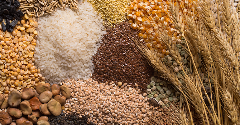
Sustainable grains present a healthy growth opportunity
3 Oct 2024
Food insights provider SPINS unveils the latest trends in the sustainable grains field, exploring how seven leading grains show healthy growth despite challenges in the global value chain.
Read more
New environmental food scoring standards emerge
30 Sep 2024
EIT Food and Foundation Earth collaborate to launch environmental food scoring for products entering the global supply chain.
Read more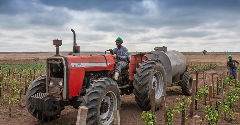
Africa progresses with food transformation strategy
19 Sep 2024
Large-scale efforts are underway to drastically change the African food sector with a $61 billion (€55 bn) set of proposed transformation plans to be implemented across forty countries. Yet there are concerns that this initiative severely jeopardises s...
Read more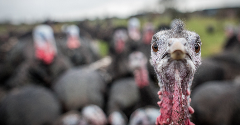
Diestel is first turkey producer to snag Regenifed certification
17 Sep 2024
In the US, Diestel Family Ranch, a family-owned turkey farming venture, has become the first producer to gain Regenified certification for its whole turkey and processed turkey product ranges.
Read more
Upside Foods sues Florida over cultivated meat ban
10 Sep 2024
In May, Florida became the first US state to ban cultivated meat's sale, manufacture, and distribution. Upside Foods, a cultivated chicken startup, has filed a federal lawsuit in response, arguing that the law is unconstitutional.
Read more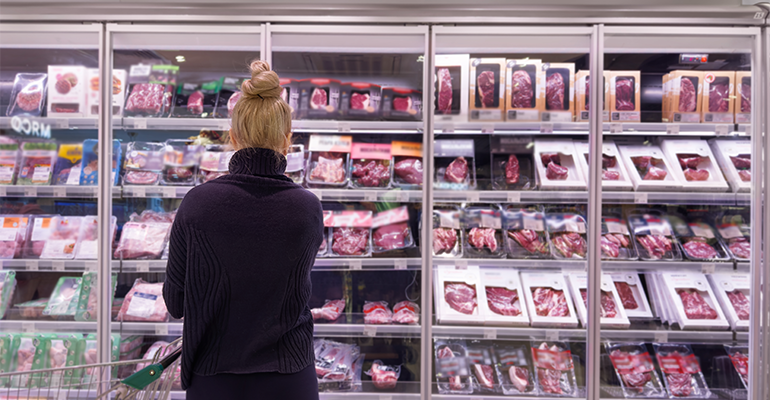
European consumers want more freedom to choose biotech-based food
3 Sep 2024
Survey findings point to growing levels of interest in cultivated meat as European consumers say they want the freedom to choose the lab-based products.
Read more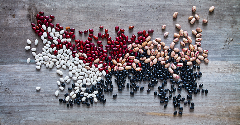
How alternative proteins could transform US agriculture and restore natural ecosystems
30 Aug 2024
As the US seeks new strategies to meet its environmental targets, a recent report from the Good Food Institute (GFI) and Highland Economics highlights the potential of alternative proteins to drive significant progress.
Read more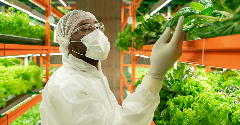
How insecure are our global food systems?
29 Aug 2024
Countries across the globe are struggling to secure safe and accessible food, according to recent reports.
Read more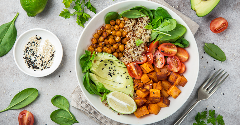
Austria’s new dietary guidelines recommend less animal protein and more plants
23 Aug 2024
Austria's dietary guidelines have been updated to reflect health and climate parameters. Both an omnivorous food pyramid and a vegetarian version are included, marking the first time a separate pyramid for vegetarians is provided.
Read more
Will ‘foie gras’ become the EU’s first approved cultivated meat?
20 Aug 2024
French startup Gourmey has submitted its cultivated foie gras for approval in the European Union (EU), signalling the first application of its kind in the region.
Read more